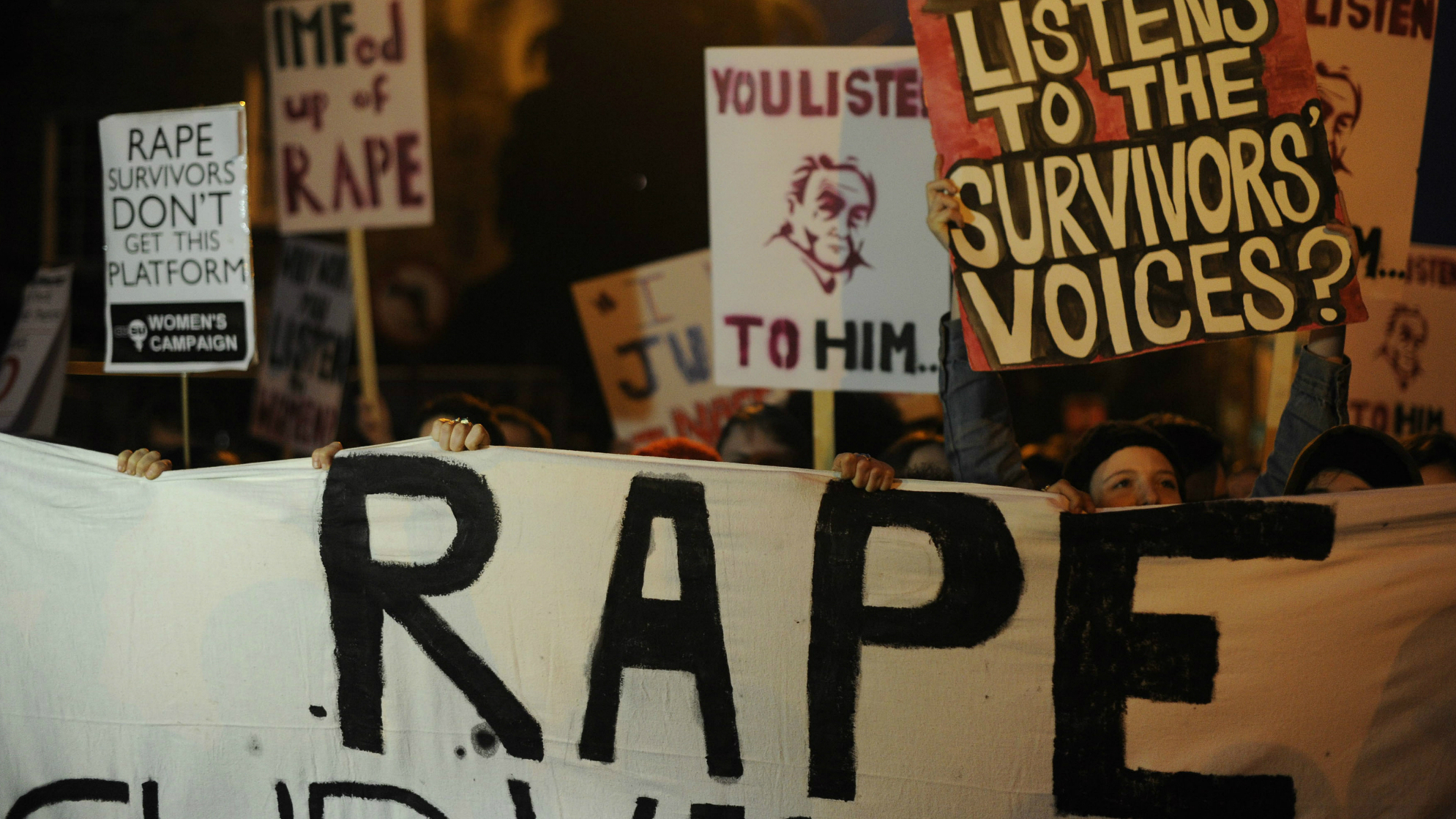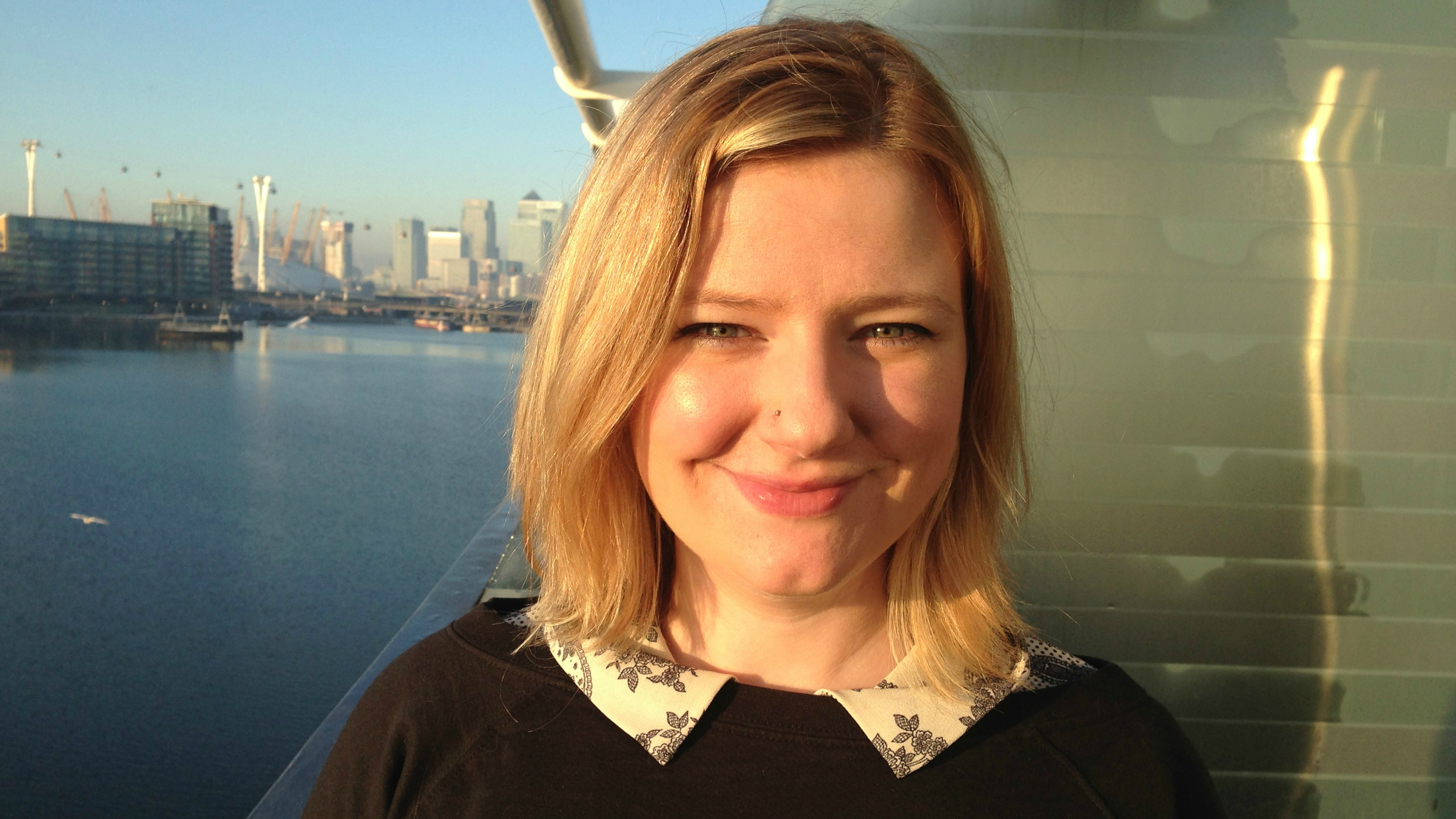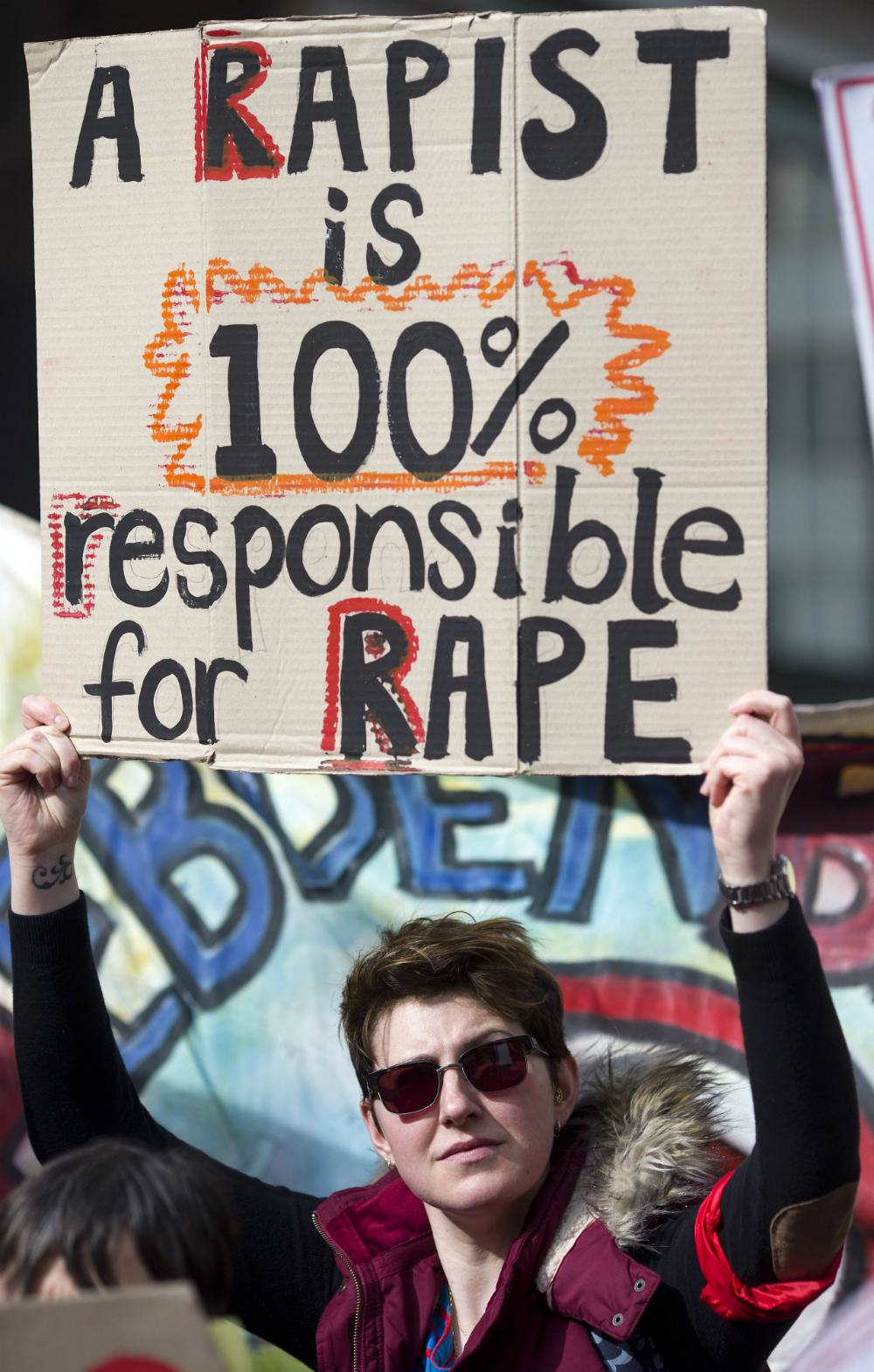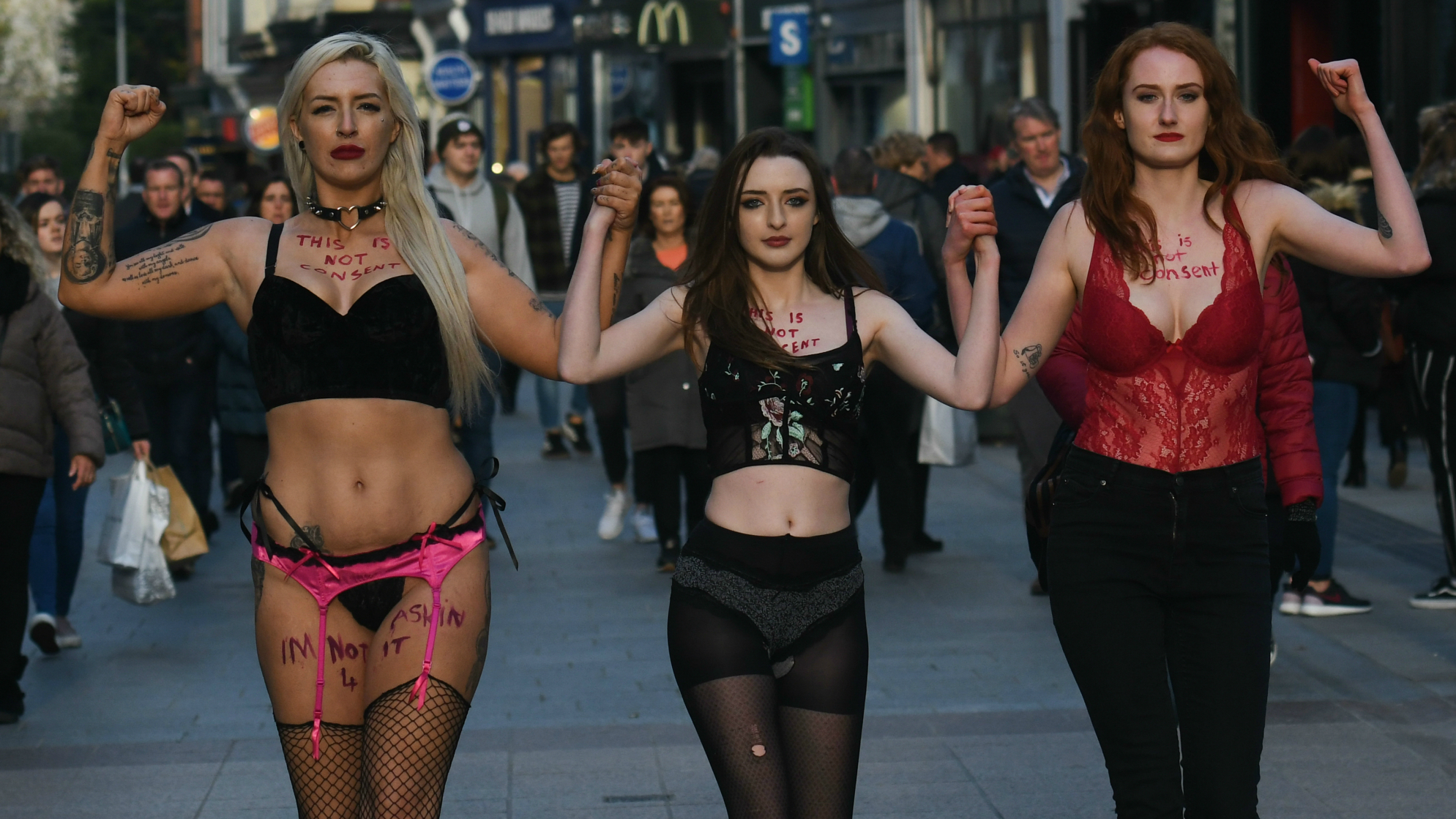Rape survivors share their stories and here’s what we can learn from them
Hello, my name is Lizzy Dening and I help survivors of sexual violence tell their unflinching honest accounts online, often when they’ve not told anyone before. Here’s why it’s crucial we learn to listen


Celebrity news, beauty, fashion advice, and fascinating features, delivered straight to your inbox!
You are now subscribed
Your newsletter sign-up was successful
Hello, my name is Lizzy Dening and I help survivors of sexual violence tell their unflinching honest accounts online, often when they’ve not told anyone before. Here’s why it’s crucial we learn to listen
This week marked the start of the UN’s 16 Days of Activism Against Gender-Based Violence and while you’d hope that in 2019 this was no longer necessary, as someone who helps survivors of sexual violence, I can attest that we still have a long way to go. As it currently stands, one in five women will experience some form of sexual violence from the age of 16, while conviction rates for rape stand at an embarrassing 1.4%. But what can we do to help survivors? Firstly, we can get better at listening.
One of the many reasons that so few rape cases are reported in the first place is that survivors worry they won’t be believed – by police, court rooms and even their own friends and family. It’s common knowledge that, living in a society where victim blaming is rife, many teachers, lecturers, police officers and other authority figures are often clumsy (or downright insulting) when it comes to the questions asked of many rape survivors in the aftermath of an assault. After all, we live in a world where what a woman was wearing or how drunk she was is often treated as ‘vital evidence’. The net result – apart from an increase in self-blame, guilt and frequent self-harming – is that many survivors never tell their stories.

Rattled by the Brexit referendum and feeling grumpy and powerless, I decided to undertake some local volunteer work to help me connect with my community (that whole ‘be the change you want to see in the world’, yada yada.) I ended up helping my local rape crisis centre in Peterborough with their social media, and then joining their board of trustees. Nearly four years on, aged 33, I’m co-Vice Chair. I’ve always been passionate about the power of language, but understanding more about how words can devastate or lift someone in their lowest moments opened my eyes to how sexual violence is often portrayed in the media. And it’s bad. The NUJ has a set of guidelines for how we ought to report on violence against women – everything from calling those who have been through an attack but not murdered ‘survivors’ rather than ‘victims’ (unless they expressly identify as victims) and not labelling violence against women as a ‘relationship gone wrong’ – but it’s rare to see them followed.
I love journalism and have been in the industry for over a decade now, so this realisation cut me deep. A combination of this, coupled with a lack of any banks of stories online, led me to set up Survivor Stories (www.survivorstories.co.uk). This is a collection of interviews with survivors of sexual violence, in their own words. My aim is to speak to survivors of all genders, ages, backgrounds and experiences, to collect together evidence that sexual violence can happen to anyone.
I initially put tentative call outs on Twitter and Facebook, and was amazed (if not entirely surprised when you consider the stats) at the volume of friends who came forward (I suppose it’s one of those topics that doesn’t tend to come up naturally, and I’ve definitely killed my fair share of dinner party patter by bringing up my project.) I also had strangers private messaging me wanting to help, and I started with one of these women – Lucy.

I was so nervous before my first interview. I worried about the right venue (loud enough that people around us aren’t listening in; quiet enough that I could record our chat), how best to put Lucy at ease, what we should cover and generally whether I was doing the right thing. Thankfully, I needn’t have worried – she was warm, friendly, and we actually managed to have a laugh over a glass of wine as well as recording her story of college rape.
Celebrity news, beauty, fashion advice, and fascinating features, delivered straight to your inbox!
It was – as they all are – a harrowing account. She described vividly the process of disassociating from her body: ‘And I remember thinking, maybe I just can’t move anymore. Maybe that’s it. Maybe I’m just a brain in this body, and the body’s now like totally separate. Totally other to who I am.But I’m still there, I’m inside.’
You can write news stories about sexual violence every single day, but this evocative description of the aftermath of rape still feels like is a sucker-punch to the heart. And every single survivor has provided unflinching, honest moments like that – more powerful than anything I’ve read on the subject before.
Each of them has told me that they looked online and in the media for stories like theirs after being raped – Is this trigger normal? Has this ever happened before? What’s wrong with me that I feel this way? When they couldn’t find any, they felt even more alone, weird or even responsible for what had happened to them. They’ve also said that being able to tell their stories on their own terms – not in a police interview or in court – sharing whatever level of detail they choose and owning their decision to speak out, has been an empowering experience. The feedback I’ve had so far that means the most has come from survivors contacting me after hearing me on the radio or reading an article, and saying that they wish this project had existed when they’d first been raped. I’m hoping in future to hear from survivors who have found the site when they most needed it.

My aim for the project is a simple one – to amplify voices and build the world’s largest database of stories. Most choose to remain anonymous, which typically gives their story less ‘power’ in the world – ignorant people tend to feel that not being named comes about when you’ve got something to hide, rather than for any of the hundred other reasons you might not want the world to connect your name with been done to you. But together, as a collective, it becomes harder to dispute. When there’s a volume of stories there, we can start to find patterns – common triggers, coping mechanisms and tools. We can learn how better to support survivors, and we can use their different experiences to unpick victim blaming (e.g. if sexual violence happens when you wear a short skirt, how do you account for the rapes of women or men wearing trousers, pyjamas or anything else?) Obviously I’d love my passion project to be funded, so I could dedicate myself to it full time, rather than squeezing it in around paid work.
Helping these women reclaim their voices is a privilege, and working with them has taught me so much. Some things that I already suspected: exercise and nature are powerful healers; eating habits are often interlinked with trauma; rape crisis centres are incredible resources. Others have been more of a surprise. That women who have been purposefully brutalised can remain so kind, open and receptive. That their main ambition is to help others in the same situation by sharing their experiences, even though reliving them can be painful. That, after years of keeping quiet, they are just so grateful to be heard.
* If you’d like more information on Survivor Stories please visit: https://www.survivorstories.co.uk or to support the project on Patreon https://www.patreon.com/survivorstories
* For further help and support or to find a Rape Crisis Centre in your local area, please visit: https://rapecrisis.org.uk/
Maria Coole is a contributing editor on Marie Claire.
Hello Marie Claire readers – you have reached your daily destination. I really hope you’re enjoying our reads and I'm very interested to know what you shared, liked and didn’t like (gah, it happens) by emailing me at: maria.coole@freelance.ti-media.com
But if you fancy finding out who you’re venting to then let me tell you I’m the one on the team that remembers the Spice Girls the first time round. I confidently predicted they’d be a one-hit wonder in the pages of Bliss magazine where I was deputy editor through the second half of the 90s. Having soundly killed any career ambitions in music journalism I’ve managed to keep myself in glow-boosting moisturisers and theatre tickets with a centuries-spanning career in journalism.
Yes, predating t’internet, when 'I’ll fax you' was grunted down a phone with a cord attached to it; when Glastonbury was still accessible by casually going under or over a flimsy fence; when gatecrashing a Foo Fighters aftershow party was easy-peasy-lemon-squeezy and tapping Dave Grohl on the shoulder was... oh sorry I like to ramble.
Originally born and bred in that there Welsh seaside town kindly given a new lease of life by Gavin & Stacey, I started out as a junior writer for the Girl Guides and eventually earned enough Brownie points to move on and have a blast as deputy editor of Bliss, New Woman and editor of People newspaper magazine. I was on the launch team of Look in 2007 - where I stuck around as deputy editor and acting editor for almost ten years - shaping a magazine and website at the forefront of body positivity, mental wellbeing and empowering features. More recently, I’ve been Closer executive editor, assistant editor at the Financial Times’s How To Spend It (yes thanks, no probs with that life skill) and now I’m making my inner fangirl’s dream come true by working on this agenda-setting brand, the one that inspired me to become a journalist when Marie Claire launched back in 1988.
I’m a theatre addict, lover of Marvel franchises, most hard cheeses, all types of trees, half-price Itsu, cats, Dr Who, cherry tomatoes, Curly-Wurly, cats, blueberries, cats, boiled eggs, cats, maxi dresses, cats, Adidas shelltops, cats and their kittens. I’ve never knowingly operated any household white goods and once served Ripples as a main course. And finally, always remember what the late great Nora Ephron said, ‘Everything is copy.’
